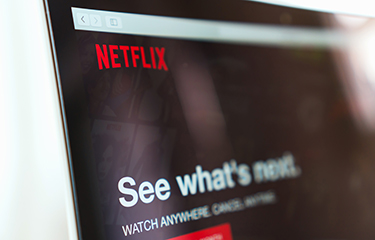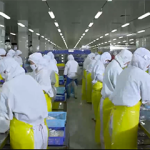Industry pans Seaspiracy as misleading

Groups and organizations involved in the global seafood industry, as well as individual stakeholders and scientists, are responding with concern to a new Netflix documentary, “Seaspiracy,” which purports to investigate the impact of commercial fishing on marine ecosystems and wildlife.
The 90-minute film, which has consistently led Netflix's top 10 rankings around the world since its late-March release, was created by the same team behind 2014’s “Cowspiracy,” a similar feature-length documentary spotlighting the animal agriculture industry.
With Seaspiracy, director Ali Tabrizi questions the sustainable fishing paradigm, referencing entities including Oceana, Dolphin Safe, the Marine Stewardship Council (MSC), and more. Tabrizi also consults several environmental experts, including social scientist Christina Hicks of Lancaster University and environmentalist and Guardian columnist George Monbiot, among others.
While Monbiot lauded the film on Twitter as a “a brilliant exposé of the greatest threat to marine life: fishing,” Hicks, MSC, Dolphin Safe, and Oceana were not as enthusiastic.
“Unnerving to discover your cameo in a film slamming an industry you love and have committed your career to,” Hicks tweeted on 26 March. “I’ve a lot to say about #seaspiracy – but won’t. Yes, there are issues, but also progress [and] fish remain critical to food [and] nutrition security in many vulnerable geographies.”
Both MSC and Oceana released separate statements hoping to “set the record straight” about some of the claims made in Seaspiracy.
While MSC said it agreed with the filmmakers that “more attention needs to be given to the crisis of overfishing,” it found the documentary to be misleading in several areas, such as its claim that sustainable fishing does not exist, as well as its assertion that MSC certification is “too easy and not credible.”
“One of the amazing things about our oceans is that fish stocks can recover and replenish if they are managed carefully for the long-term,” MSC said. “Examples of where this has happened and stocks have come back from the brink include the Patagonian toothfish in the Southern Ocean and the recovery of Namibian hake, after years of overfishing by foreign fleets, [and] the increase in some of our major tuna stocks globally. And what is even more amazing, is that if we take care of our fish stocks, they take care of us. Research shows that fish stocks that are well-managed and sustainable, are also more productive in the long-term, meaning there is more seafood for our growing global population, which is set to reach 10 billion by 2050.”
More than 400 MSC-certified fisheries exist around the world, MSC said, and the reformation process related to fishing practices and growth of the sustainable seafood movement is something the organization “is very proud to have played a part in, along with many other partners and organizations.”
“Contrary to what the filmmakers say, certification is not an easy process, and some fisheries spend many years improving their practices in order to reach our standard. In fact, our analysis shows that the vast majority of fisheries that carry out pre-assessments against our criteria do not meet these and need to make significant improvements to gain certification,” MSC said.
The organization, which is an independent not-for-profit created by WWF and Unilever more than 20 years ago in response to overfishing concerns, also took issue with Seaspiracy’s claims that it is funded by the seafood industry, and that certified fisheries within the program have unacceptable levels of bycatch.
“We are not a commercial enterprise and we do not receive any income from fisheries or from the third-party certification of fisheries,” MSC said. “Our income is derived from two sources: charitable donations from foundations, and licensing of our blue eco-label, which is used by companies in the supply chain, such as food producers, supermarkets, and restaurants to identify MSC-certified seafood. The use of our eco-label is voluntary, and only a fraction of seafood coming from certified sustainable fisheries bears our eco-label.”
Although the organization disagreed “with much of what the Seaspiracy documentary-makers say, one thing we do agree with is that there is a crisis of overfishing in our oceans.”
“However, millions around the world rely on seafood for their protein needs. With the global population set to reach 10 billion by 2050, the need to harness our natural resources more responsibly is more urgent than ever. Sustainable fishing has a vital role to play in securing those resources,” it said.
Tabrizi said he approached MSC for inclusion in the film, but the certifier declined.
“The renowned marine scientists Sylvia Earle and Callum Roberts, who expose the failure of sustainable fishing in the film, explain how the term ‘sustainable’ is so vague that even bycatch of seabirds, dolphins, and seals can be considered sustainable. This is not what consumers think of when they pick up a fillet of fish with the MSC blue tick,” Tabrizi said, as reported by The Guardian.
In its statement, Oceana clarified that it “campaigns for and focuses on is increasing ocean abundance through policy victories that put in place science-based fisheries management in national waters, where most of the world’s fish are caught.”
In the film, a brief excerpt from what was a two-hour interview with a former employee, “who was one of Oceana’s key leaders in winning policy victories against illegal fishing,” suggested the nonprofit did not have a definition for sustainability, according to the Guardian report.
“We are already campaigning in countries that account for 28 percent of the world’s catch. The science is clear: This country-by-country approach can help the oceans rebound dramatically and feed a billion people a healthy seafood meal each day. We can save the oceans and feed the world,” Oceana said.
The NGO celebrated people having “the right to choose what they eat, and we applaud those who make personal choices to improve the health of our planet.”
“However, choosing to abstain from consuming seafood is not a realistic choice for the hundreds of millions of people around the world who depend on coastal fisheries – many of whom are also facing poverty, hunger, and malnutrition. Oceana campaigns to save the oceans for both the people who depend on them and to protect the marine animals (and other forms of life) who live in them,” Oceana said. “Additionally, we strongly believe that we can be most effective by working together to win policy victories that help to save the oceans and feed the world (rather than by influencing personal choice).”
Mark Palmer, who serves as U.S. director of the International Marine Mammal Project (IMMP), which pioneers the Dolphin Safe tuna fishing standard, told The Guardian that his comments in Seaspiracy were taken “grossly out of context.” Palmer is asked in the film if his group could guarantee no dolphin had ever been killed in any global tuna fishery.
“I answered there are no guarantees in life but that drastically reducing the number of vessels intentionally chasing and netting dolphins as well as other regulations in place, that the number of dolphins that are killed is very low,” Palmer told the Guardian. “The film took my statement out of context to suggest that there is no oversight and we don’t know whether dolphins are being killed. That is not true.”
IMMP Director David Phillips agreed with Palmer’s sentiments, similarly arguing that the film decided to “grossly distort and mischaracterize” the aims of the Dolphin Safe label by calling it a conspiracy to benefit global fishing industries.
“The Dolphin Safe tuna program is responsible for the largest decline in dolphin deaths by tuna fishing vessels in history. Dolphin-kill levels have been reduced by more than 95 percent, preventing the indiscriminate slaughter of more than 100,000 dolphins every year,” Phillips said in a statement.
The National Fisheries Institute, representing the U.S. seafood industry, also released a statement making clear its disapproval of the movie.
“The concern with some slickly produced propaganda pieces, masquerading as ‘documentaries,’ is that audiences will not recognize the film’s true agenda. Despite the artistic aerial shots, exciting albeit hyperbolic cloak-and-dagger scenes and stirring action-movie like sound track, there is little concern Seaspiracy will be mistaken for anything but a vegan indoctrination movie,” NFI stated.
The film “begins by suggesting, without evidence, that fisheries bycatch is an issue ‘governments [have] practically given up on enforcing,’” NFI said, before taking on “a narrative that an ‘internationally recognized seafood label [is] a complete fabrication.’” Seaspiracy also touches upon industry issues of grave concern without the care and reverence they’re due, according to NFI.
“As the film begins its expected arch into unabashed vegan rhetoric about fish feeling pain and how, ‘animals… use democratic decision-making,’ it logs a chapter about labor abuses in the seafood space,” NFI said. “This is a serious and concerning topic that the filmmakers bring nothing new to. While their interviews with silhouetted victims are heartbreaking, what is really on display here is, as the New York Times put it, a ‘cheap imitation of hard-hitting investigative journalism.’”
Meanwhile, the Global Aquaculture Alliance (GAA), in its own response, invited Tabrizi and Seaspiracy Executive Producer Kip Anderson “to join the nonprofit organization’s responsible-seafood journey by participating in its upcoming discussion on social accountability as part of its series of GOAL 2021 virtual events.” It also extolled the value of the seafood industry as whole, and those who working to continuously improve it.
“Through a stepwise approach, GAA and other reputable NGOs have worked tirelessly with industry over the past 20-plus years to continually improve the lives of the people working in aquaculture and fisheries as well as the ecosystems in which aquaculture and fisheries are practiced. Simply ending aquaculture and fishing, as the people behind Seaspiracy advocate for in the documentary, will do nothing but abandon the approximately 820 million people employed by the industry and rob billions of people of a healthful source of protein,” the organization said.
Some viewers have shared on social media that the film has challenged them to rethink their consumption habits. Vegan Canadian musician Bryan Adams urged his Twitter followers to watch the movie, and Chris Froome, a Grand Tour-winning British cyclist, said “my mind has been blown” by the film.
Photo courtesy of sitthiphong/Shutterstock






Share